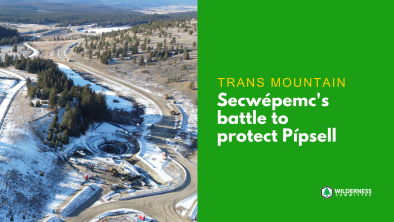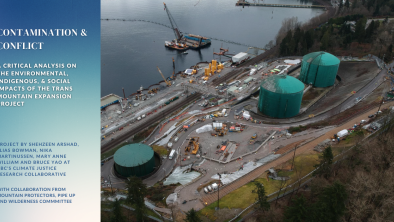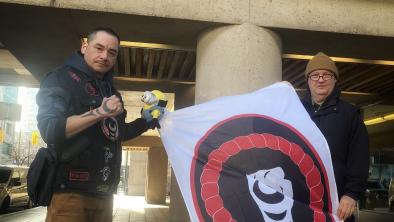NEB’s pipeline approval puts Christy Clark in the hot seat
Globe and Mail

The conditional approval of Kinder Morgan’s oil pipeline expansion project by the National Energy Board shifts the politically risky decision now to both the federal and British Columbia governments.
B.C. Premier Christy Clark, who will go to the polls in May, 2017, is currently opposed to the project, which has generated strong opposition in the province because it does not yet meet the five conditions that she has established for new heavy oil pipeline projects.
However, if Ottawa and Kinder Morgan continue to make progress in meeting B.C.’s five conditions, Ms. Clark could be left saying yes to something that faces unyielding opposition from mayors, First Nations leaders, environmental activists and – if the polls are correct – a significant number of British Columbians.
The NEB panel on Thursday concluded that Kinder Morgan’s Trans Mountain project should be built because the benefits – diversifying Canada’s energy exports, creating jobs and generating revenue for governments – outweigh the risks. The panel concluded that the pipeline would not likely cause significant adverse environmental effects.
In a statement, Kinder Morgan applauded the NEB finding “because it is in the Canadian public interest.”
However, the project still faces several hurdles, and the federal cabinet is not expected to make a decision until the end of the year.
While the Liberal government in Ottawa has indicated it would like to see the project move ahead, it remains a difficult sell in B.C.
The project would triple the capacity of the existing Trans Mountain pipeline that runs between Edmonton and Burnaby, resulting in a seven-fold increase in oil tanker traffic in Vancouver’s English Bay. With three freighters at anchor on the bay behind him, Vancouver Mayor Gregor Robertson on Thursday called the NEB decision a “profound disappointment” because he believes the risks are too high.
“This project is a direct threat to Vancouver’s successful economy and environment [and to] our fragile waters here,” he said. “So we see this [decision] as a call to action.”
Mr. Robertson, who has a close relationship with Prime Minister Justin Trudeau, said the city will “hit the ground running” in a campaign to convince the federal government to reject the proposal.
“We’ve got a lot of work to do in the months ahead to prove our case, to make sure that Ottawa hears the voices from the West Coast that are so concerned about our waters, about our environment, about our economy and livelihood and quality of life here,” he said.
Mr. Robertson added that the conditions set out by the NEB did not give him any comfort. “I think the conditions are really not going to do anything to prevent the inevitable catastrophe that would happen with an oil spill in Vancouver.”
B.C. Environment Minister Mary Polak told reporters that, despite the 157 conditions attached to the NEB’s approval, her government is not in a position to support the project. “There is still quite a lot of work to be done,” she said, although she added that she was pleased that some of the conditions recommended by the NEB reflect her government’s concerns about inadequate marine oil spill response capacity.
The provincial Liberal government must now conduct its own environmental assessment review, and Ms. Polak could not say if it would be complete before the next B.C. election. But she said she does not believe Ottawa would approve the project over the objections of the province.
Environmentalists also say they will seek to put pressure on the federal government. “We have a very good chance that this government is going to reject this pipeline when they see the opposition in B.C.,” Wilderness Committee campaigner Peter McCartney said. “You can’t railroad a pipeline through over massive community opposition any more.”
In Victoria, NDP Leader John Horgan said his party will align with the mayors of Vancouver and Burnaby in fighting the project.
“This pipeline is not in the public interest,” he told reporters, saying it does not meet British Columbia’s expectations for protection of the coast or for action on climate change.
That stance puts Mr. Horgan at odds with Alberta NDP Premier Rachel Notley, who has lobbied Ottawa to help her province get its oil to overseas markets.
Alberta Energy Minister Margaret McCuaig-Boyd welcomed the NEB decision. “Today’s recommendation … fits a responsible national approach to energy infrastructure. Canada is balancing the need for much stronger action on climate change with the need to pay for that action, by sustainably developing our natural resources – including our energy resources.”
With reports from Wendy Stueck in Vancouver and Justin Giovannetti in Edmonton
Read the original story here
Photo: 2007 Kinder Morgan spill (WC files)


